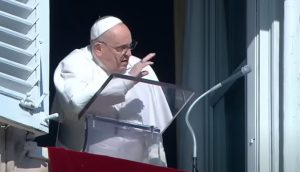
The U.S. sanctioned two more Haitian politicians — Rony Celestin and Richard Lenine Hervé Fourcand — who allegedly abused their power to advance drug trafficking. (Haitian Times)
On Friday the U.S. Treasury accused Celestin, the current Haitian senator, of using his political position to “orchestrate” drug imports from Venezuela into Haiti, as well as drug exports to the US and the Bahamas. It also alleged that Fourcand “uses his own aircraft to transport drugs through southern Haiti”, while seeking to install people in government positions “who would help to facilitate his drug trafficking activities”. (Al Jazeera)
U.S. efforts to sanction Haitians accused of working behind the scenes to support a surge in criminal gang activity have been hindered by the fact that many of the individuals in question are legal U.S. residents or citizens, a significant legal hurdle, reports the Miami Herald.
Competing gangs control Haitian capital Port-au-Prince — the boundaries are invisible, but life threatening, reports the BBC. “Those who live here carry a mental map, dividing this teeming city into green, yellow, and red zones. Green means gang free, yellow can be safe today and deadly tomorrow, and red is a no-go area. The green area is shrinking as heavily armed gangs tighten their grip.”

Venezuela
- Venezuela’s opposition asked President Nicolás Maduro’s government to set a date to resume political talks in Mexico. (Reuters, Efecto Cocuyo, see last Monday’s post)
- The two sides signed a preliminary agreement for the U.N. to administer frozen government funds in order to alleviate Venezuela’s crushing humanitarian crisis. But since then, both sides have attacked each other, reports Efecto Cocuyo. On Friday Maduro accused the opposition of representing the “kidnappers” of Venezuelan funds, while opposition parties accused Maduro of avoiding talks about freeing political prisoners and electoral guarantees.
- Last week, Maduro linked the setting of electoral conditions — a key issue in recently resumed discussions in Mexico City with the political opposition — to U.S. policy toward Venezuela, specifically lifting of sanctions. (See last Thursday’s briefs.)
- Venezuela’s oil minister and top representatives of state-run company PDVSA on Friday signed contracts with U.S. oil firm Chevron Corp, reports Reuters. (See last Monday’s post.)
Brazil
- Brazilian president-elect Luiz Inácio Lula da Silva’s victory has been hailed as a climate savior, but he will face significant challenges to reverse the current administration’s record deforestation rates, reports the Guardian. Among other things, Lula will have to “contend with increasingly violent and diversified crime in the Amazon, with loggers, land grabbers, illegal miners and other criminals emboldened by (President Jair) Bolsonaro’s laissez-faire attitude.”
- Experts say that Lula will have to rebuild the state’s capacity to fight deforestation, bolstering environmental enforcement agencies that were gutted of staff and resources under Bolsonaro, reports the Los Angeles Times. But he will also have to convince residents of far flung communities who are economically dependent on illicit industries.
- Environmental defenders in the Amazon face deadly risks — six months after Dom Phillips and Bruno Pereira were murdered, security forces have largely withdrawn from the area, leaving indigenous activists exposed to criminal networks, reports the Guardian separately.
- Brazilian President-elect Luiz Inacio Lula da Silva said he might travel to the United States before his inauguration on Jan. 1 to meet with President Joe Biden. (Reuters)
Ecuador
- Illegal mining continues to proliferate in remote corners of the Amazon rainforest, like, for example, Ecuador’s Nabo province, where police operations this year have uncovered shocking levels of environmental damage, reports InSight Crime.
Colombia
- Colombia has reached an agreement in peace talks with the ELN guerrilla group to allow the Indigenous Embera community to return their lands in the departments of Choco and Risaralda in western Colombia. The pact, announced by President Gustavo Petro, is the first significant success achieved at peace negotiations taking place between the government and the ELN, reports Al Jazeera.
- At least 12 people died when a landslide buried a bus in Colombia’s northwest, yesterday, reports Reuters.
El Salvador
- Salvadoran security forces surrounded the city of Soyapango on Saturday, part of a massive gang crackdown being carried out by President Nayib Bukele’s government. Troops cut off transit in and out of the city, while special forces searched houses for alleged gang members, reports AFP. (Photos at El Diario de Hoy.)
Honduras
- Honduras’ government announced a partial state of exception in parts of Tegucigalpa and San Pedro Sula. The government will suspend certain constitutional rights for 30 days under a national security emergency aimed at controlling extensive gang extortion practices, reports Reuters.
Culture Corner
- Argentine Miguel Tomasín is one of the few professional musicians with Down syndrome. Over the course of a 30-year career, he has brought attention to the artistic visions of people with developmental disabilities, reports the New York Times.
Jordana Timerman / Latin America Daily Briefing
http://latinamericadailybriefing.blogspot












